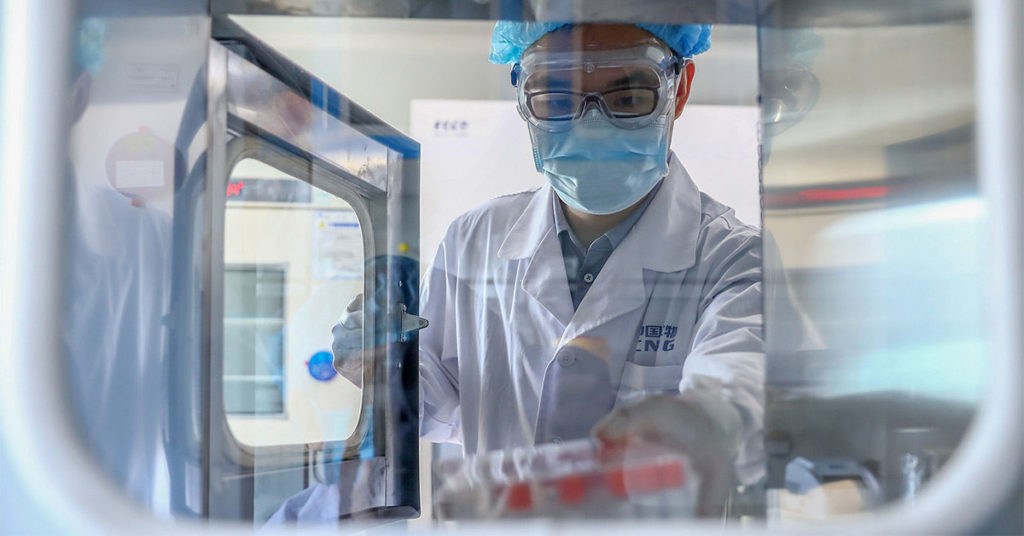On 2 December, the UK government accepted the recommendation of the Medicines and Healthcare Products Regulatory Agency (MHRA) to approve Pfizer-BioNTech’s COVID-19 vaccine. This was the first time that Pfizer-BioNTech's novel coronavirus vaccine had been approved by a country and where it would get mass-distributed for use.
The UK's motivation to be the first in the world to approve the vaccine is quite understandable. As the second wave of the pandemic hit the world, the UK government had to implement another lockdown in November. Rishi Sunak , the British Chancellor of the Exchequer, warned that due to the pandemic, the UK will experience its "worst recession in more than 300 years," with unemployment rates expected to reach 7.5%. Prime Minister Boris Johnson too, tweeted that "it is only with the protection of vaccines that we will ultimately be able to reclaim our lives and get the economy moving again."
The UK’s approval of Pfizer-BioNTech vaccines signaled the commencement of the global vaccine competition. Many countries and regions will successively approve more vaccines, causing a sudden and huge demand for vaccines around the world. Due to the huge difference between vaccine production capacity and demand, countries will certainly do everything within their capability to obtain vaccines. Recalling to earlier during the outbreak, when the COVID-19 pandemic started to spread globally, personal protective equipment (PPE) and ventilators were in short supply, and there were incidents where countries detained or competed for PPE supplies in order to meet their own needs. It was that time that we witnessed what had been once been politeness in diplomacy became rascality.
As many countries are still battling with the novel coronavirus, vaccines carry the only hope for the world to be liberated from the pandemic. Will the competition for PPE and ventilators early on be repeated, but with vaccines this time? Such a possibility cannot be ruled out, and the competition might very well be fairly intense. In extreme cases, it may even cause a "vaccine war".
Researchers at Anbound estimate that the global vaccine competition may manifest in different situations:
In the first scenario, there would be fierce competition between vaccine development and production countries and non-production countries. Although there are hundreds of vaccine development plans around the world, few countries can develop and produce vaccines quickly enough.
Vaccine-producing countries will certainly give priority to meet their own needs, while non-producing countries will be falling behind despite having the same demand. Canada, a close ally and neighbour of the United States, is also facing a lack of vaccine supply. Canadian Prime Minister Justin Trudeau has warned that it will take a while for Canadians to get the vaccines, because the first batch of the vaccines is likely to be given to the people of the producing country. It is estimated that Canada will not be able to obtain vaccines until the first few months of 2021. Facing domestic criticism, Trudeau stated that while the United States, the United Kingdom and Germany all have facilities for mass production of vaccines, but Canada does not have such production capacities.
The second is the vaccine competition between developed and developing countries. The economic differences between countries are not only evident in the development and production of vaccines, but also in the distribution, supply and purchase of vaccines.
Most of the vaccine research, development, and production are concentrated in developed countries, and only a few developing countries such as Russia, China, and India are capable of developing and mass-producing vaccines. Many developing countries can only rely on the World Health Organization (WHO)’s COVID-19 Vaccines Global Access (COVAX) to obtain vaccines.
There is no doubt that the humane vaccine distribution coordinated by international organizations will not be included in the first batch of supply plans. This is especially true considering that some developing countries tend to have larger populations and therefore a higher demand for vaccines, as such they will be only be able to meet the demand of vaccine supply later.
Third, it is difficult to avoid the influence of geopolitical factors in the global vaccine development and implementation plans. COVAX plans to provide 2 billion doses of COVID-19 vaccines globally by the end of 2021 to "self-financing economies" and "funded economies."
Theoretically humanitarianism during pandemic relief knows no borders and has nothing to do with politics, but in reality, other than differences due to the level of research and development and production, there will also be obvious geopolitical camps in terms of vaccine research and development, production, standards, licensing as well as sales and distribution.
To be sure, vaccines from China and Russia are almost unlikely to enter the markets of developed countries in Europe and America. China and Russia may also set some corresponding thresholds to protect their own vaccine production and utilization. The influence of such geopolitical factors will affect the implementation of the COVAX plan to a certain extent.
Fourth, the huge supply-demand difference in vaccine use will intensify the "vaccine war". Looking at the demand,
1. The U.S. government, through its "Operation Warp Speed" vaccine program, guarantees that the it can obtain more than 300 million doses of vaccine by June 2021 to ensure all Americans who want the shot can be supplied.
2. The EU has reached an agreement with Moderna, where it can purchase up to 160 million doses of the company's vaccine. The EU will also be purchasing 200 million doses from Pfizer-BioNTech, and has the right to purchase an additional 100 million doses.
3. The UK has already ordered 40 million doses of vaccines, enough to vaccinate 20 million people.
4. Japan plans to purchase vaccines for 145 million people from Pfizer, AstraZeneca and Moderna. If 2 doses are administered per person, the total demand will reach 290 million doses.
5. Novavax will deliver 40 million doses of vaccines to Australia.
6. Saudi Arabia will purchase the vaccines through the COVAX plan to meet the vaccination needs of 20% of the country's population (about 6.5 million people).
7. Taiwan has signed a contract to purchase 10 million doses of vaccines, and so far, with a total of 15 million doses. The demand for vaccines in the above seven categories of countries and regions will exceed 1.1 billion doses next year.
8. Mainland China, Russia, India and other developing countries have large populations, hence their demand for vaccines will be greater than that of developed countries. Even if only half of the population is vaccinated, the demand for vaccines in developing countries should exceed 3 billion doses next year.
In terms of vaccine production capacity, Pfizer stated that it could supply 1.5 billion doses of vaccine globally in 2021; Moderna expects to produce between 500 million and 1 billion doses next year; AstraZeneca’s total annual vaccine production capacity is 2 billion doses; Novavax and Serum Institute of India’s annual vaccine production capacity is about 2 billion doses and will reach more than 1 billion doses in 2021.
Both China and Russia will have a vaccine production capacity of about 1 billion doses in 2021. Roughly speaking, the vaccine production capacity of the major countries mentioned above is about 8 billion doses, which can meet the needs of about 4 billion people. This means that about half of the world's population will still not be able to obtain vaccines next year.
The success of the vaccines has brought hope to the world to rid itself of the COVID-19 pandemic, but for many reasons, the global vaccine purchase and distribution will be full of competition. It cannot be ruled out that in extreme cases this might evolve into a "vaccine war" which will sweep across the whole world.


